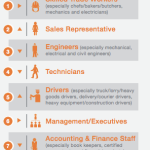“This song is Copyrighted in the U.S., under Seal of Copyright #154085, for a period of 28 years, and anybody caught singin’ it without our permission, will be mighty good friends of ourn, cause we don’t give a dern. Publish it. Write it. Sing it. Swing to it. Yodel it. We wrote it, that’s all we wanted to do.”
“Open will win. It will win on the internet and will then cascade across many walks of life: The future of government is transparency. .. The future of culture is freedom. The future of science and medicine is collaboration. “
Jonathan Rosenberg, Senior VP, Google
______________________________________
We’ve all googled for a particular article or paper, only to find that we’d have to pay $30 to read it and thought ‘stuff that – someone will have made it available for nothing’. Paywalls are the bane of researcher’s lives. So, when I heard about the #icanhazpdf hashtag, it seemed, not only unnecessary, but also verging on the paranoid.
Allow me to explain: Some academics, frustrated at the lack of Open Access to their work, are promoting ‘circumvention’. Andrea Kuszewski set up the hashtag #icanhazpdf, (a tribute to the infamous #icanhascheezburger meme) to encourage authors of paywalled articles to share pdf copies of their work. I’ve shared pdfs of my own articles, dozens of times. But by doing so, authors, having handed over the rights to the publisher, are technically in breach of copyright law. So, once the requested #icanhazpdf paper has been delivered, Andrea strongly recommends that the tweet is swiftly deleted. She describes it as ‘an act of civil disobedience – it’s just a way of saying things need to change.’
Like I said, ingenious, playful, but a tad paranoid? That was until I heard about Dan Pazskowski . Dan is the CEO of the Canadian Vintners Association. An article concerning the CVA appeared in Blacklock’s Reporter, a subscription-only journal. Dan didn’t have a subscription, but a colleague did, so Dan asked for a copy of the article. When Dan contacted Blacklock’s Reporter about some inaccuracies in the article, he was asked how he’d read the article, as he wasn’t a subscriber. He was then sent an invoice for $314, which he refused to pay. Dan was then taken to the Ontario Small Claims Court, where he was ordered to pay $11,470, plus taxes, in damages.
So, it’s perfectly legal to lend a friend a copy of a book you’ve bought, but not, apparently, a journal article? Dan is appealing the decision and all advocates of open access will be hoping he wins. Jonathan Rosenberg is right: OPEN will win. But vested interests will fight tooth-and-claw to hang on to outdated, and restrictive, copyright shackles.
The battle for OPEN is in constant play. This week saw some significant gains for Open Access advocates: US Secretary of State for Education Arne Duncan introduced the ‘#GoOpen’ initiative. This government campaign ‘encourage’ states, districts and schools to use open licensed education materials. In order to provide further encouragement, legislation is being proposed ‘that would require all copyrightable intellectual property created with Department grant funds to have an open license.’ A growing number of districts are supporting the initiative, which could eventually see the end of the textbook in US schools. I haven’t yet seen the response from the major education publishers, but I can’t imagine they’re thrilled at the prospect.
In the UK, the Open Access movement has largely been confined to higher education institutions. The logic in both the UK and the US is the same: when academic papers have been publicly funded by taxpayers, why should we have to pay again to read them? Most colleges around the world have to pay tens of thousands of dollars a year in subscriptions to academic journals, yet the authors of these papers rarely receive payment for their publication.
Academics want their work to be shared with the widest possible audience. As an Oxford academic recently said: ‘Most academics want to communicate things; most conventional publishing fails to do that substantially.’ Do the maths: even popular academic over-priced books sell in the low thousands – Ken Robinson’s Creativity Ted talk has been viewed thirty-five million times.
We’re witnessing ideas spreading like bush fires, through personal and social networks, tweets, Facebook, blogs and google searches. The future of innovation, and the future of research, lies in collaboration, and that can’t happen whilst knowledge is locked away and people face prosecution for attempting to unlock it.







